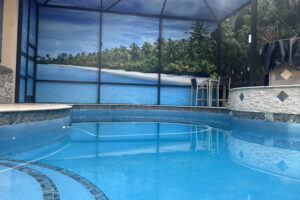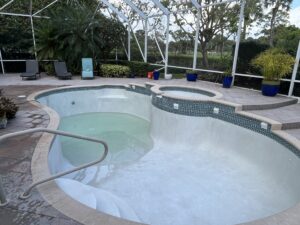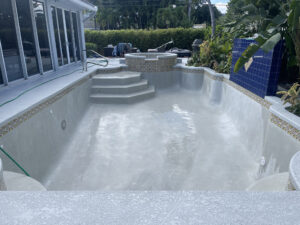Welcome to this comprehensive guide on prolonging the lifespan of your swimming pool’s surface! As an experienced pool professional, we understand the significance of proper maintenance to ensure your collection remains pristine for years. In this book, you’ll learn strategies and tips for combatting wear-and-tear damage, increasing longevity, and honing your maintenance skills – let’s dive right in!
Understanding Pool Lifespan and Maintenance
An immaculate pool can bring years of pleasure for you and your family. Regular and appropriate maintenance is critical to increasing the lifespan of any collection; neglecting it could result in surface deterioration, algae blooms, equipment malfunctions, or expensive repairs down the line. Devoting time and effort towards this investment could significantly extend its longevity while saving on costly repair bills.
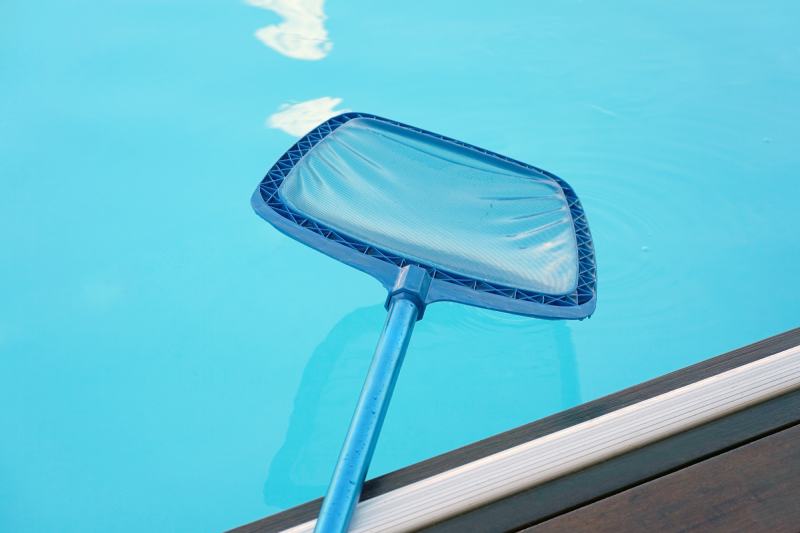
Importance of Proper Maintenance
Proper maintenance of a pool is crucial to its long-term performance and enjoyment. Regularly inspecting chemical levels, cleaning debris, scanning equipment, and making adjustments is essential in keeping it in its prime state. Ensuring adequate circulation and filtration also help avoid algae buildup, as these measures will protect your investment and provide an enjoyable swimming environment.
Factors Influencing Pool Lifespan
Multiple factors impact the lifespan of a pool. Construction materials play a crucial role – concrete and gunite are generally durable. Still, they may need periodic resurfacing, while fiberglass pools tend to last for decades with little upkeep required, while vinyl liner pools need regular liner replacements. Your location, weather conditions, and usage patterns also play a part.
Types of Pools and Their Expected Lifespans
Concrete and gunite pools typically last 30 years or more with proper care, though resurfacing may need to be performed every decade. Fiberglass pools previous 25 years but are susceptible to algae growth; vinyl liner pools usually last only 15 years, with replacement needed every 7 to 10 years.
Concrete Pools and Gunite Pools
Concrete and gunite pools are popular choices due to their customizability and durability. Yet, their porous surfaces can make them susceptible to staining from chlorine stains, while plaster may deteriorate over time. Routine inspections with crack repairs completed quickly as needed and periodic resurfacing can extend their lifespan and ensure it continues to look their best for years.
Pros and Cons of Fiberglass Pools
Fiberglass pools feature smooth surfaces without pores, making them resistant to algae growth and staining. They are relatively low maintenance and require limited chemical and energy use in filtering systems. While their initial costs may be higher than other materials, such as concrete or metal pools, their longer lifespan and minimal upkeep requirements make fiberglass more cost-effective.
Vinyl Lined Pools: Maintenance and Replacement Options
Vinyl liner pools offer great value and have a comfortable surface at a competitive price point, yet are vulnerable to tears, punctures, and fading over time. Regular inspection of your vinyl lining will help prolong its life span; opt for high-quality material to ensure durability when replacing it.
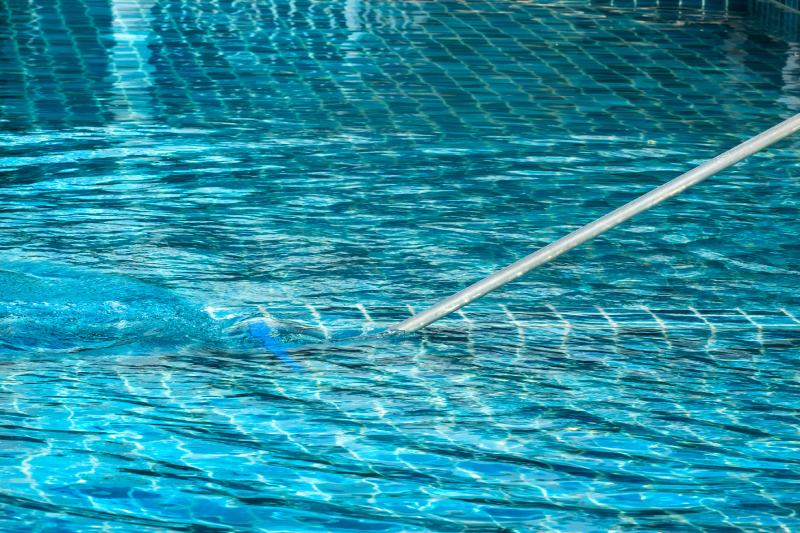
Strategies to Extend Pool Lifespan
Maintenance Tips for Pool Surfaces
Regular brushing and vacuuming of the pool’s surface will prevent algae and debris accumulation and ensure proper chemical balance to prevent surface etching and staining. Any imperfections should be addressed promptly to stop further worsening of their condition.
Understanding Wear and Tear
Pool surfaces can sustain wear and tear from chemicals, weather elements, and regular usage. Monitoring surface conditions and planning to resurface as necessary are crucial steps towards avoiding structural issues and prolonging pool lifespan.
Clean Pool
A well-kept pool not only looks inviting but can extend its lifespan as well. Routinely skimming debris, cleaning filters, and backwashing the system will promote efficient circulation while preventing clogs from minimizing stress on pool equipment and equipment failure.
Essential Pool Equipment Maintenance
Regarding pool equipment such as pumps, filters, and heaters, routine inspection and maintenance should be performed annually. Lubricating o-rings, replacing worn parts when necessary, and cleaning filters will help ensure optimal functioning and extend lifespan.
New Plaster Curing Method: Ensuring Long-Lasting Surface
Curing is critical to creating a durable pool surface. To avoid cracking and ensure optimal plaster bonding, fill your pool slowly during its curing period and follow any recommended procedures to keep cracking at bay. Finn’s Pool Services offers comprehensive pool maintenance solutions, from new plaster curing and routine upkeep to expert guidance. Visit Finn’s Pool Services now to discover their services and see how they can extend the lifespan of your surface pool!

Dive into Decades of Pool Bliss
Implementing the expert strategies and insider tips outlined in this comprehensive guide, you can extend the lifespan of your pool surface and take pleasure from having an exquisite, well-maintained pool for decades to come. Engaging in regular maintenance, making informed choices regarding which pool type best meets your needs, and quickly responding to any concerns are all essential for ensuring that swimming becomes carefree and relaxing! So dive right in and experience blissful swimming for yourself and your loved ones – happy swimming!
Specializing in all things pool services, the team behind Finns Pool Services brings more than just technical expertise to West Palm Beach. Rooted in family values, this full-service company has not only built a legacy in top-notch pool care but also prides itself on its vast team of experts and its unwavering commitment to professionalism. With countless successful pool projects under their belt, they stand as a beacon of trust and quality in the heart of Florida. Dive into a world where dedication meets the deep end.

